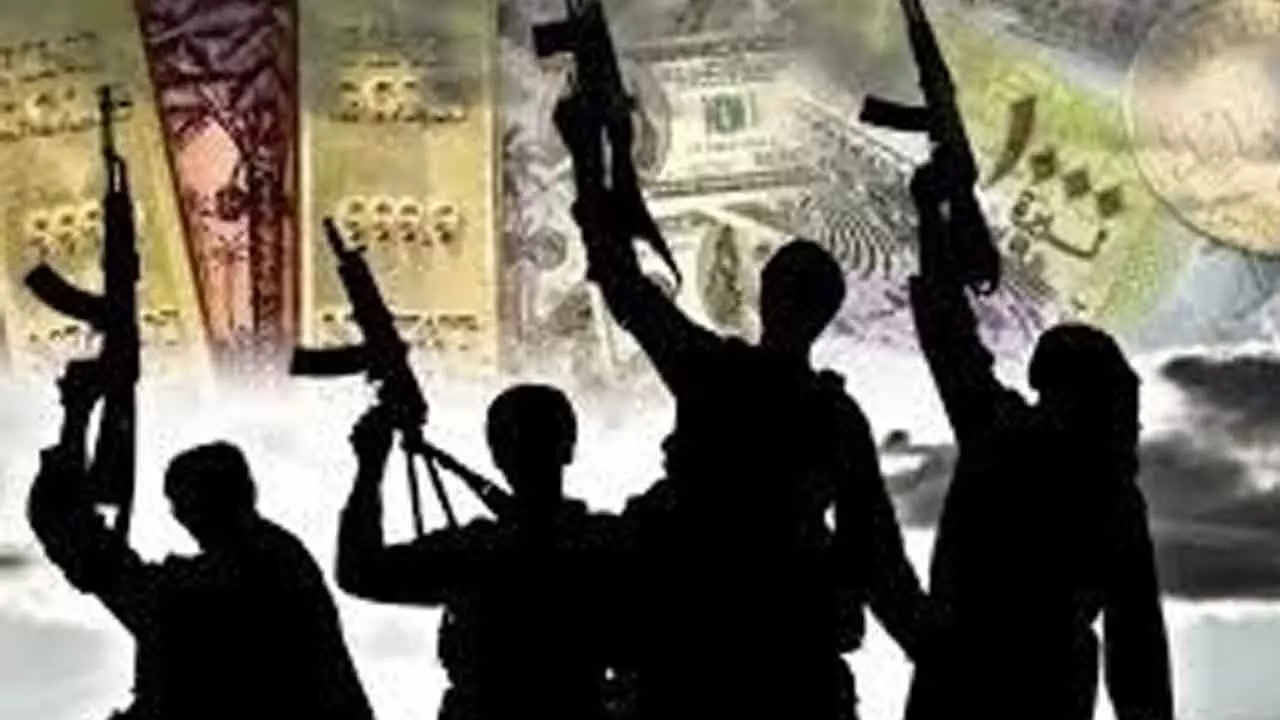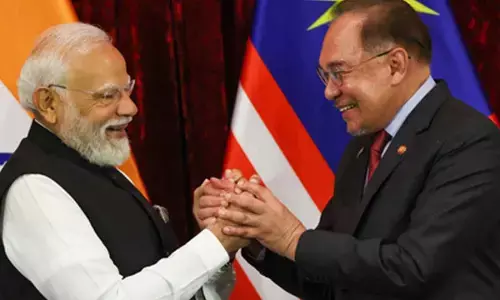Bangladesh – A potential source of grave concern

Banks and Financial Institutions that have access to international money transfers are a vital link and facilitate international trade in goods and services. They are used by the governments, MNCs, tourists and ordinary citizens. But they are also accessible to organized crime, drug traffickers, terrorists and white collar criminals
A third bank serviced by HSBC despite suspected links to terrorist financing is Social Islami Bank Ltd. (SIB) located in Dhaka. SIB Ltd. was founded in 1995, changed its name from Social Investment Bank Ltd. in 2009. It operates 76 branches throughout Bangladesh and provides a variety of individual and commercial banking services, including deposits, loans, investment advice, commercial financing, foreign exchange, and wire transfers and its shares are traded on Bangladeshi Stock Exchanges. Until May 2012, HSBC was one of the bank’s major correspondents, providing it with services in multiple countries. HSBC also has an affiliate located in Dhaka, called HSBC Bank Asia Pacific (HBAP).
HBAP introduced SIB to HBUS. In 2003, HBUS Payments and Cash Management (PCM) sought to open an account for SIB, providing it with US dollar wire transfer and clearing services. When HBUS first sought to open the account in 2003, it asked for an enhanced due diligence report on the bank from the HSBC FIG. Noting that Bangladesh was a high-risk country, the resulting FIG report contained adverse information about some of the bank’s owners and officials. Most serious were allegations that two shareholders, the IIRO and the Islamic Charitable Society Lajnat al-Birr Al Islam (LBAI), had links to terrorism. IIRO then held 8.62 per cent of the total outstanding shares, and was the bank’s largest single shareholder, while LBAI held 1.54 per cent.
The 2003 FIG report about the two shareholders revealed that IIRO is a Saudi-Arabian charity, and was named in the 2002 lawsuit brought forward on behalf of family members of victims of the September 11, 2001 terrorist attacks. The IIRO was accused of having ‘played key roles in laundering of funds to terrorists for the 1998 African embassy bombings’ and having been involved in the ‘financing and aiding and abetting of terrorists in the 1993 World Trade Centre bombing’.
The IIRO has also reportedly funded Al-Qaeda directly as well as several of its satellite groups. Osama Bin Laden’s brother-in-law, Mohammed Jamal Khalifa, headed the Philippine branch of the IIRO in the 1990s. The Philippine government has charged that the group contributed to terrorist causes there. LBAI was established in 1987. Lajnat al-Birr Al Islamiah was the original name of the Benevolence International Foundation (BIF), and that it originally had offices in Saudi Arabia and Pakistan.
According to the US government, among the purposes of LBAI was to ‘raise funds in Saudi Arabia to provide support to the Mujahadeen then fighting in Afghanistan’, as well as to provide ‘cover for fighters to travel in and out of Pakistan and obtain immigration status’. Benevolence International has been tied to terrorism and its director, Enaam Arnaout, was indicted in 2002 with conspiring to defraud his group’s donors by secretly providing financial and logistical help to Al-Qaeda for a decade’.
The FIG said that it is of significant concern that the leading shareholder of SIB (at 8.62%), International Islamic Relief Organization (IIRO), has been accused in both the Philippines and in America for funding terrorist groups. The group is under investigation by the FBI. Another of the bank’s shareholders, LBAI with 1.54% has also been connected to terrorist groups.
While the 2003 FIG report provided significant adverse information about SIB and noted that LBAI was the original name of the Benevolence International Foundation which ‘had been tied to terrorism’, it failed to state that in 2002, the US had designated the Benevolence International Foundation as a ‘financier of terrorism’ with whom US persons are prohibited from doing business. SIB in 2003, was partially owned by two organizations associated with terrorist financing.
Nevertheless, on 14.10. 2003, HBUS AML Compliance approved SIB as an HBUS PCM client. Despite the bank’s location in a high-risk country, the terrorist links uncovered in connection with two of its shareholders and a director, HBUS opened the account without designating the bank as a SCC client warranting additional monitoring and due diligence. The 2005 FIG report again identified IIRO, as linked to terrorism, noting that it was ‘alleged to have provided funding to terrorist groups such as Al Qaeda in the past’, and is ‘alleged to have acted as a cover for Al Qaeda operations in the Philippines’.
The FIG report stated: ‘Based on the frequency with which the group is connected to terrorist financing in the press, it is likely that their activities will always be under scrutiny, and future government sanctions against the group are highly probable’. The FIG report ‘strongly recommended’ that the account not be approved ‘until the matter is discussed with Senior Compliance Management’ (SCM). 18 months later, on 3.8.2006, the US designated 2 branches of IIRO and a high ranking IIRO official as terrorist financiers and prohibited US persons from transacting business with them. On 4.8.2006 HSBC’s FIG issued an updated due diligence report on SIB, containing significant adverse information about IIRO.
FIG report noted that the World Check database relied on by HSBC for KYC information classified IIRO as associated with terrorism, linked it to providing assistance to Al-Qaeda and other terrorist organizations, and described it as ‘allegedly linked’ to the World Trade Centre bombing, ‘plots to assassinate Bill Clinton and the Pope’, and ‘the planned destruction of the Lincoln Tunnel and Brooklyn Bridge’. IIRO held 3.85 per cent in 2009, 1.69 per cent in 2010 and currently holds 1.61 per cent interest in the bank. However, an internal FIG due diligence report quoted a 2008 local press article stating that the IIRO did have an account at SIB, as well as over 50,000 bank shares which FIG estimated might then be worth $733,000.
In 2010, the HBUS KYC profile referenced a Bangladeshi Central Bank letter dated 30.6.2010, stating that IIRO had accounts at 3 Bangladeshi banks, including SIB that needed to be closed. SIB told the sub-committee that IIRO did have a ‘foreign currency account’ with the bank that was opened in 1995, but has a current balance of zero. Also in 2009, a due diligence report issued by the HBUS FIG identified a second, long term SIB shareholder that raised concerns. It disclosed that Islamic Charitable Society, LABI, still held a 1.54 per cent ownership interest in the bank. The 2009 FIG report explained that World Check, the database relied on by HSBC for KYC purposes, had classified the charity ‘as a terrorist organization with reported ties to Hamas. In September 2008, the Israeli government reportedly declared it an illegal entity’. Despite this new information in the 2009 FIG report, the HBUS KYC profile on SIB does not acknowledge it. SIB has informed the sub-committee that LABI remains a 0.22 per cent share owner, but does not have any account at the bank.
The ongoing ownership of the bank’s shares by IIRO and LABI, was not the only troubling development. SIB’s initial Chairman of the Board, Ahmed Akbar Sobhan, also known as Shah Alam, was a well-known businessman who held, with his son, a 3.35 per cent ownership interest in the bank since its inception. Beginning in 2006, however, Sobhan and his son became the subjects of several criminal investigations involving bribery, corruption, fraud, and tax evasion. In 2007, Sobhan and his son reportedly fled to the United Kingdom, after which Sobhan was the subject of corruption charges brought in his absence by the Bangladesh Anti-Corruption Commission, which sentenced him to eight years in prison.
HSBC, a global bank, and if safeguards are lacking, HBUS offers a gateway for terrorists to gain access to US dollars and the US financial system. In May 2012, HSBC changed its policy to apply decisions to terminate a client relationship to apply globally to all its affiliates.
Banks and Financial Institutions that have access to international money transfers are a vital link and facilitate international trade in goods and services. They are used by the governments, MNCs, tourists and ordinary citizens. But they are also accessible to organized crime, drug traffickers, terrorists and white collar criminals. With the change in the geopolitical environment in Bangladesh and the anti-India narrative by the Bangladesh Nationalist Party and other outfits and the possible instability at least in the short run, India can anticipate increased activity of the terrorist organizations in Bangladesh duly financed by IRRO, ISI and possibly by other agencies.
One should not be surprised if China may increase its area of influence by providing financial assistance to Bangladesh plagued with shortage of foreign exchange as it has done in many African countries or indirectly use the good offices of ISI by channelling funds to create anti-India sentiment. India’s Foreign Policy needs not only a ‘Look East’ but a ‘Look Around’ in the changed scenario not only in Bangladesh, but in its immediate neighbourhood.
(Writer is former DG, DRI and former Member, CBIC)














